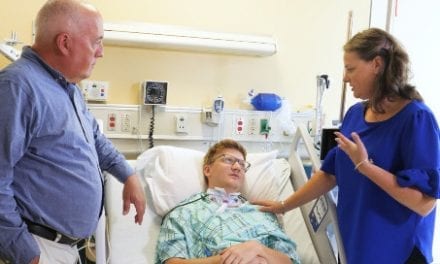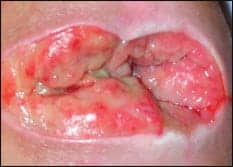As part of the White House Conference on Aging, the US Department of Health and Human Services (HHS) announces in a press release several programs that, it says, are designed to enhance the lives of older Americans and provide resources to their families, friends, and other caregivers.
This announcement, per the release, celebrates the 50th anniversary of Medicare, Medicaid, and the Older Americans Act, as well as the 80th anniversary of Social Security.
According to the press release, the agencies and the programs include:
The Centers for Medicare and Medicaid Services is proposing a rule to update the quality and safety requirements for more than 15,000 nursing homes and skilled nursing facilities to improve quality of life, enhance person-centered care and services for residents in nursing homes, improve resident safety, and bring these regulatory requirements into closer alignment with current professional standards
The National Institutes of Health is partnering with a group of public and private partners to promote healthy aging through its Go4Life exercise and physical activity campaign for older adults. This campaign includes a call by the Association of State and Territorial Health Officials to support physical activity events for older adults beginning with Go4Life Month in September 2015.
The National Prevention Council announces that in the Spring of 2016 it will release a Healthy Aging Action Plan to advance the National Prevention Strategy, which will identify federal action steps to promote prevention and well-being among older Americans.
To combat Alzheimer’s and other dementias, HHS is announcing an update of the National Plan to address Alzheimer’s disease. The update includes priority actions that the government will take over the next year to address these conditions.
The Health Resources and Services Administration (HRSA) is announcing that it will create an Alzheimer’s Disease and Related Dementias training curriculum to build a healthcare workforce with the necessary skills to provide high-quality dementia care and ensure timely and accurate detection and diagnosis of dementia.
The Office on Women’s Health is developing related training to help family caregivers maximize their own health and address specific care needs of persons with dementia. The curriculum will be released next year.
The Surgeon General is joining with the YMCA to announce a partnership with YMCA associations across the country to host intergenerational physical activity events during the first week of August, in order to promote opportunities for young and older Americans to be active together.
The Administration for Community Living is launching a $4 million Brain Health Awareness Campaign to help older adults better understand changes that occur in the brain as people age and reduce the fear of discussing concerns with family members and clinicians.
To reduce the occurrence of preventable injuries, such as falls, the Centers for Disease Control and Prevention (CDC) is launching a free online course offering continuing education credits to physicians, nurses, and other health professionals on making falls prevention a routine part of clinical care. The CDC’s evidence-based falls prevention tool, known as STEADI (Stopping Elderly Accidents, Deaths & Injuries) will be implemented across the country.
In an effort to help older Americans stay healthy, HRSA is announcing $35 million in awards to health professions training programs to expand geriatrics education to prepare the healthcare workforce to respond to the needs associated with advancing age.
The Centers for Medicare and Medicaid Services is partnering with AARP, the American Medical Association, the American Association of Family Physicians, the National Black Nurses Association, the National Hispanic Medical Association, the National Medical Association, the Partnership to Fight Chronic Disease, the National Council on Aging, the National Hispanic Council on Aging, and SAGE (Services and Advocacy for GLBT Elders) to disseminate information to patients and members on Medicare’s preventive benefits.
In order to improve the science on understanding and preventing elder abuse, the National Institutes of Health will convene a state of the science workshop on elder abuse with researchers, clinicians, and others to review the science on understanding and preventing abuse; screening tools to identify abuse victims; effective interventions and research in related areas like child abuse and domestic violence that might inform research on elder abuse; and gaps and opportunities in this field of research.
[Source: US Department of Health and Human Services]




